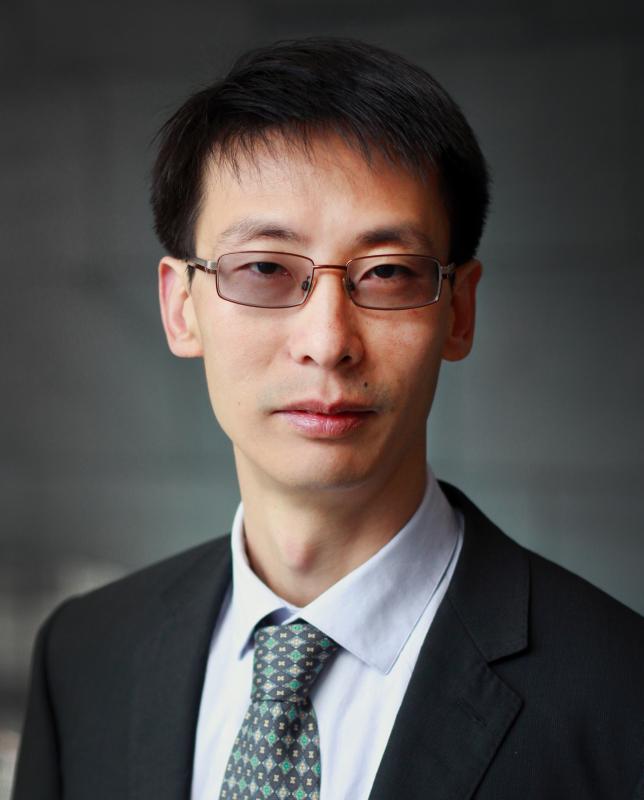
Being in the FPE program exposed me to many different aspects of practical fire protection engineering, detection, suppression, structure fire protection, risk analysis, etc., so I was well prepared in both fundamental and practical applications.
Yi Wang came to study fire protection engineering at the University of Maryland (UMD) completely by chance. Born and raised in Jinan, China, Yi was raised in a culture where the study of technical fields, especially engineering, was not only encouraged, but expected.
While studying fluid mechanics at Tianjin University, Yi began searching for programs in the U.S. to complete his Ph.D. research. He applied with multiple universities on the east coast, including the Department of Mechanical Engineering at UMD. Arnaud Trouvé – a professor in the Department of Fire Protection Engineering (FPE) – saw his application and approached him about doing combustion research for FPE. In 2002, Yi joined the department with the award of a graduate assistantship funded by the U.S. Department of Energy.
"I was happy to branch out of fluid mechanics, and learn something new and exciting," said Yi. “The prospect of doing computer simulation of fire on the largest super-computer at the time, and producing new knowledge of a very complex engineering problem, was very attractive to me.”
Yi focused on high-fidelity numerical simulations of turbulent combustion phenomena relevant to fire dynamics.
“He was an outstanding student and perhaps the best Ph.D. student I have ever advised,” said Trouvé. “To me, Yi is the perfect example of the new generation of FPE leaders that the Department has been producing in recent years through the Ph.D. program.”
In 2005, Yi received his Ph.D. in mechanical engineering with a specialty in fire protection engineering, and accepted a position with Risk Management Solutions in Silicon Valley; a risk-assessment firm serving insurance companies, financial institutions, government and non-governmental bodies to mitigate risk from different disasters. Working as a fire modeler, Yi was part of a team that developed software products for insurance companies to assess fire risk, which determined insurance pricing. The experience provided a good base for work he would later do at the Fortune-500 company, FM Global; a firm he dreamed of working for while studying at UMD.
“FM Global – a unique company with a strong history of fire research – provides many of the textbook materials that we use in FPE,” said Yi. “So, working for them became a dream of mine. Unfortunately, they had no open positions when I completed my studies.”
Only two years later, however, fate again – in the form of Professor Trouvé – intervened.
“One day Arnaud called me and said that FM Global was hiring, and he encouraged me to apply,” said Yi. “This was an opportunity to contribute to bigger fire research programs with CFD [computational fluid dynamics] fire modeling work. FM Global has the best scientists and research facilities in the field, so of course, I was thrilled at the prospect of working for them.”
Yi currently serves as the Staff Vice President, overseeing fire dynamics research, at FM Global in Massachusetts, where he’s been for over a decade.
Said Yi, “UMD provided all the fundamental knowledge for my current work, which is engineering application driven research. Being in the FPE program exposed me to many different aspects of practical fire protection engineering, detection, suppression, structure fire protection, risk analysis, etc. So I was well prepared in both fundamental and practical applications. What’s more, the field is constantly evolving, so there’s always something new to learn and always another way to make more of an impact – it’s a technical field, but there’s also plenty of freedom to be creative.”
For current and future students of the program, Yi encourages them to get involved in the Department and on campus as much as possible: "The engineering major is complex, but also very logical. Students shouldn't be afraid of the challenge, but having an aptitude for mathematics does help you to be successful in this program. Once your confidence is built, solid-engineering skills will develop gradually, and logically, with the well-designed course work provided by UMD. Also, combining theoretical understanding with practical experience is the best way to absorb the knowledge, and make it stick, so take every opportunity for internships and co-ops!”
Yi is an active member of the FPE Board of Visitors, and sits on the Management Committee of the International Association for Fire Safety Science.
Top